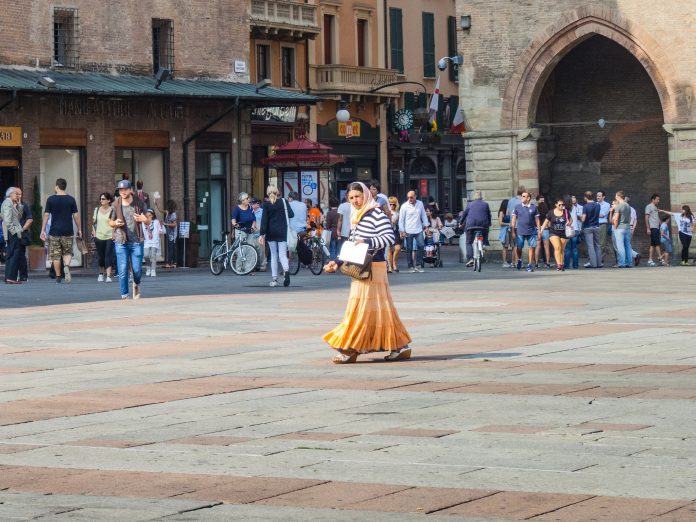In Italy, five defendants are currently on trial in the Court of Latina in the Lazio region, facing charges of spreading propaganda and incitement to commit racially-aggravated crimes against Roma. The case goes back to July 2020 when the accused posted calls on social media for the Campo di Castel Romano on the Pontina to be burned down and everybody there to be napalmed. The comments followed the news that the authorities had failed to clear the camp. The investigators concluded that these posts were incitement to commit violence for racial, ethnic, national reasons, and that the authors had propagated supremacist ideas based on racial hatred.
Just days earlier on 14 May, police in Puglia promptly denounced rumours of Romani child abductors as ‘fake news’. A message had been circulating on WhatsApp warning parents to be careful, because in some areas of the city Roma had been kidnapping children. Media reported that some mothers were so frightened by the message they were keeping their children indoors. The voice message claimed that the police had intervened. In their statement, the Cerignola Police swiftly debunked the message as false, and issued a categorical denial there was any such case of attempted kidnapping.
The dangers posed by inciteful hate speech and the link between words and deeds were made all too clear in March 2021, by the Italian Supreme Court of Cassation when it confirmed the sentences of four people, who were part of a mob that completely destroyed an informal camp near Turin in 2011, forcing the inhabitants to flee. This shocking mob violence was sparked by a completely false allegation of sexual assault. The Court confirming the first instance judgment as well as the opinion of the sentencing judge, Paola Trovati, that the hate crimes committed were “the product of an ancestral and never subsided ethnic hatred towards Gypsies” which led “normal citizens” to carry out “acts of inhuman violence“. These are welcome moves in what is a deeply worrying context.
The corrosive impact of hate speech on the public’s notion of what constitutes common sense was thrown into sharp relief by the near-lynching of a Romani women accused of pickpocketing on the metro in Rome on the 13 May. Passengers who intervened set upon the woman, angrily beating and kicking her. She had to be rescued from the fury of the mob by transport staff who saved her from more serious injury. How commuters could deem such extreme violence to be a proportionate reaction to the alleged crime, and how so many participated in publicly meting out mob punishment against a Romani woman, who had by that stage been rendered defenceless, is particularly chilling to contemplate.
Hate speech ‘allowed or even encouraged by members of Government’
The seeming impunity enjoyed by those who spread hate speech is especially dangerous, because as Bhikhu Parekh warned, “If anything can be said about a group of persons with impunity, anything can also be done to it. This is because if a group can be treated with contempt, stripped of dignity, dehumanized, treated as belonging to an inferior species, and a moral climate is created in which harm done to it is seen as right and proper and does not arouse a sense of outrage.”
In recent years, the dangers have been multiplied and the bigotry greatly amplified across social media. A European Parliament study found that rising hate speech ‘poisons society’ and surfaces at the highest levels, and both political actors and citizens ‘express their thoughts without inhibition’ on social media. For its part, the European Commission described the “sharp rise in hate speech and hate crime across Europe – offline and online” as a particularly serious and worrying phenomenon, and proposed to extend the list of EU crimes to hate speech and hate crime.
As for Italy, what has become shocking is the extent to which hate speech has become routine in recent years. A not- untypical example is the Lega politician Giorgia Povolo, who in 2018 posted the following on social media: “Gypsies, not Roma but gypsy shitters, ticks and parasites capable of stripping everything…”
Following a 2019 field visit to Italy, the Office of the United Nations High Commissioner for Human Rights (OHCHR) expressed serious concerns about the increase of intolerance, racial and religious hatred, and xenophobia, “which in some cases is allowed or even encouraged by political leaders and members of Government.” In November 2018, United Nations Special Procedures highlighted that “this climate of intolerance could not be separated from the escalation in Italy in hate incidents against groups and individuals, including children, based on their actual or perceived ethnicity, skin colour, race and/or immigration status”.
As regards hate speech, the OHCHR noted that the prevalence of problematic statements “appears to indicate that they are not occurring sporadically or in isolated cases. Rather, they occur quite regularly in the public discourse, including at high political levels, leading to strong risks of increase in racial discrimination and hate crimes in society at large.” This led to a situation where “hate speech has become normalized, and manifestations of hatred has become permissible.”
The OHCHR reviewed numerous inflammatory statements by politicians, including members of Government. This shocking litany of racist abuse included statements that black people and migrants “should understand that we are racists and all go home”; and that Islam is incompatible with Italian values and Constitution. As for Romani people, they should “have their hands cut off”, should “work harder and steal less”, and according to public statements by Italian Members of the European Parliament, “Gypsies are the dregs of the society.”
Matteo Salvini and the normalisation of antigypsyism
In 2018, the Guardian reported on warnings of a dangerous acceleration in attacks on immigrants and minorities after 12 shootings, two murders and 33 physical assaults were recorded in the two months since the Lega leader Matteo Salvini, became interior minister. in one incident a 13-month-old Romani girl was shot in the back with an airgun pellet. In at least two attacks on immigrants, the perpetrators allegedly shouted Salvini’s name. Back then Salvini contemptuously dismissed “the wave of racism as simply an invention of the left” and in response to rising criticism tweeted “many enemies, much honour” – a reference to a quote from Benito Mussolini on what was also the anniversary of the fascist dictator’s birth. Salvini’s first move when he entered the interior ministry on 1 June 2018 was to say: “Good times are over for illegals.”
The extent to which anti-Roma racism had become normalised in Italy was evident not just in the persistence of mass evictions and demolitions of Roma camps, but in the dehumanising language that accompanied threats of expulsion and banishment targeting Roma, from the highest level of political office, such as Salvini’s notorious call in 2018 for a “mass cleansing street by street, piazza by piazza, neighbourhood by neighbourhood.”
In the run-up to the 2022 general election, amidst all the speculation about the consequences of a victory for the supposedly ‘post-fascist’ Fratelli d’Italia there was scarcely a mention of Italy’s Roma. This was all the more remarkable in light of the track record of Meloni’s coalition partners, Silvio Berlusconi and Matteo Salvini, whose treatment of Romani communities respectively, revealed much about what it means to normalise fascism in 21st Century Europe.
As predicted, this coalition is playing well-behaved as an exemplary EU member state in the international arena. But at home, to divert attention from economic stagnation and campaign promises gone sour, the heat will be turned on minorities, as the far-right opts to wage culture wars against multiculturalism and gender ideology, in defence of “God, homeland, family”, and backs it up with nativist attacks and hate speech against immigrants, LGBT ‘lobbies’, and other visible minorities, not least the Roma.
Originally published by the European Roma Rights Centre (ERRC):
http://www.errc.org/news/antigypsyism-in-italy-virtual-hate-and-real-life-consequences


